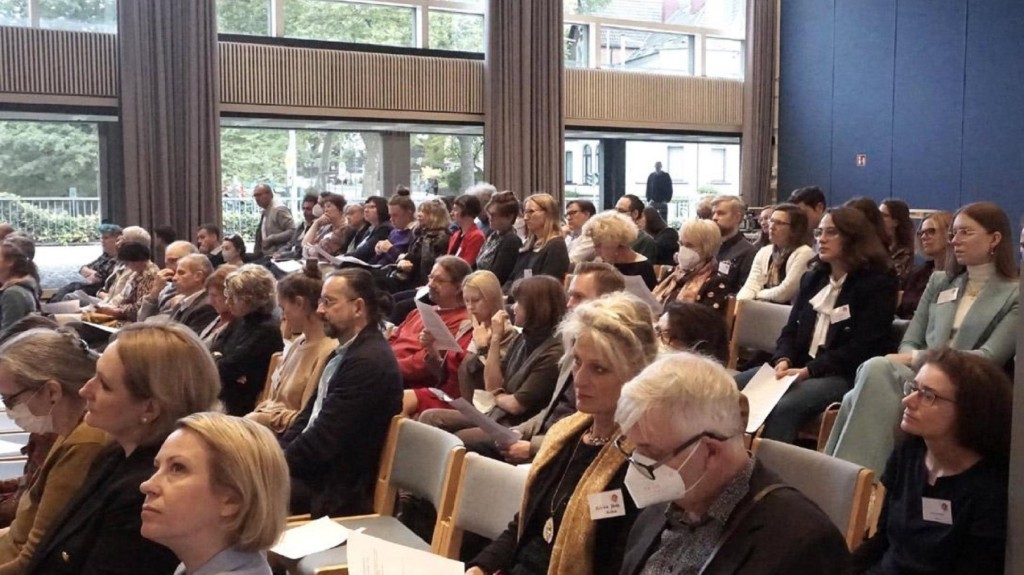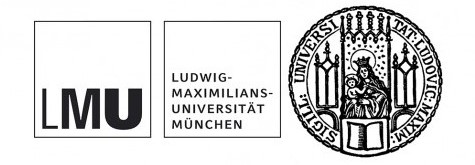
At the “Slavistik-Tag” Bochum, a congress of German Slavicists at the 22nd October 2022, our network organized two panels under the title “Spheres of Ecological Knowledge in Russian Culture and History”. While the first one was dedicated to a discussion of our research agenda with external panelists, the second panel included presentations of our own research.
Fist Panel:
In the first panel, three discussants commented on the perspectives and risks of our research agenda:
In her contribution “Ecorealism? Back to Reality on Behalf of Ecology” (orig.: “Ecorealism? Zurück zur Realität im Zeichen der Ökologie”), Susanne Strätling (Professor of Comparative Literature, FU Berlin) discussed the importance of literature as a form of ecological knowledge. Referring to Will Slocombe, Strätling emphasized ecocriticism as a discursive countermovement against linguistic constructivism, relativism and nihilism. Since ecological thinking about literature offers new approaches to reality, Strätling proposed the term “Ecorealism” for further debates, particularly aimed at Russian and Soviet traditions of factography and documentary aesthetics of ecological catastrophes.
In the second response “The Environment of Cultural and Literary Animal Studies”, Nadine Menzel (Research Associate, Leipzig University) pointed to the intersections of ecocriticism and a neighboring field of study, not merely in their topological focus on spaces of cohabitation such as the forest and the steppe. While the ecological perspective focuses on environments and spheres, animal studies advocate the particular, the “small” entities within larger environments. With exemplary discussions of the intermediate spaces between wilderness and civilization in Chekhov and Tolstoy’s theory of violence from a human-animal perspective, Menzel demonstrated how ecocritical readings might profit from zoological perspectives
The panel’s third discussant, Robert Kindler (Professor for Eastern European History, Institute for East European Studies, FU Berlin), looked at “Russian Ecospheres” from the viewpoint of (global) history. Kindler raised the question whether a decolonial perspective on “Ecospheres” was possible, one that would avoid imperial pitfalls of an assumed universal competence of historians of Eastern Europe. For further explorations, Kindler pleaded to overcome a widespread north-centric approach to global history (directed against the global south) and to include more disciplines and indigenous voices on ecology: local history (or kraevedenie), ethnology, and anthropology
Second Panel:
The second panel gathered presentations from the network members’ individual research on planetary knowledge in Russian modernism:
Clemens Günther gave a synopsis of imaginations of climate capsules in science-fiction texts of Russian symbolism and discussed their relationship with contemporary discourses of habitability (Chakrabarty).
Philipp Kohl looked into the poetological aspects of planetary time in Mikhail Prishvin’s prose in the 1920s and 1930s and his reception of Vladimir Vernadskii’s theory of the biosphere
Tatjana Petzer’s talk on Vladimir Vernadskii’s concept of autotrophy and its fictional representations had to be cancelled and will hopefully form part of a future meeting. The discussion revolved around questions about specific literary forms of ecological knowledge (drama, production novel, diary) and their relationship with the “outside of the text” – be it symbolic, realistic, or factographic.



